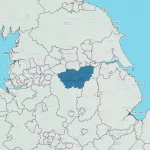Sponsored Links
Exposed Wi-Fi Networks Can Lead to High Broadband Bills
Posted: 30th Jul, 2008 By: MarkJ
Global Secure Systems (GSS), the value-added IT security systems integrator and reseller, has warned that end-users running unsecured wireless (Wi-Fi) networks could face higher broadband bills due to abuse by network "freeloaders".
The problem has also become more important since the announcement of a new illegal file-sharing agreement between ISPs, government and the creative industry last week (news). Consumers and businesses with open Wi-Fi networks could find themselves in trouble when outsiders start piggybacking networks to download illegal music:
According to Hobson, with the latest generation Wi-Fi routers increasing the effective range of signals, and the increasing use of business parks, industrial estates and rented offices, it is almost impossible to know which third party has used up all your broadband data allocation without permission:
Presently this particular type of problem is still uncommon and the perception that there's a wireless hacker lurking on every street corner is unrealistic. However, it does happen and leaving a wireless network unsecured is just asking for trouble.
We recently uploaded our own 'Top 10 Wireless Security Tips', which covers most of the basics and is well worth a read if you're looking to secure your network. Remember, it's always possible to backup your wireless router settings and restore them if anything goes wrong, so there's no reason to be afraid of fiddling.
The problem has also become more important since the announcement of a new illegal file-sharing agreement between ISPs, government and the creative industry last week (news). Consumers and businesses with open Wi-Fi networks could find themselves in trouble when outsiders start piggybacking networks to download illegal music:
"Most companies have fair usage policies written into their business broadband contracts, but many ISPs have not enforced these policies to date. That situation is changing and, to prevent freeloaders running up big bills on a company's broadband account, we're advising firms to tighten up their WiFi security to prevent this happening," said David Hobson, GSS' managing director.
"The term is called WiFi hi-jacking and Police in the State of Victoria down under have received hundreds of reports of firms and peoples' broadband being hi-jacked - and bills being run up - without their knowledge or consent," he explained.
"The term is called WiFi hi-jacking and Police in the State of Victoria down under have received hundreds of reports of firms and peoples' broadband being hi-jacked - and bills being run up - without their knowledge or consent," he explained.
According to Hobson, with the latest generation Wi-Fi routers increasing the effective range of signals, and the increasing use of business parks, industrial estates and rented offices, it is almost impossible to know which third party has used up all your broadband data allocation without permission:
"The solution, quite simply, is to stop this happening in the first place, and ensure that guests in your offices are given a WiFi access password that changes on a regular basis, as well as changing your main office WiFi password much more regularly," he said.
Presently this particular type of problem is still uncommon and the perception that there's a wireless hacker lurking on every street corner is unrealistic. However, it does happen and leaving a wireless network unsecured is just asking for trouble.
We recently uploaded our own 'Top 10 Wireless Security Tips', which covers most of the basics and is well worth a read if you're looking to secure your network. Remember, it's always possible to backup your wireless router settings and restore them if anything goes wrong, so there's no reason to be afraid of fiddling.
Search ISP News
Search ISP Listings
Search ISP Reviews
Latest UK ISP News








Cheap BIG ISPs for 100Mbps+
150,000+ Customers | View More ISPs
Cheapest ISPs for 100Mbps+
Modest Availability | View More ISPs
Latest UK ISP News
Helpful ISP Guides and Tips
Sponsored Links
The Top 15 Category Tags
- FTTP (6722)
- BT (3863)
- Politics (3037)
- Business (2736)
- Openreach (2629)
- Building Digital UK (2488)
- Mobile Broadband (2435)
- FTTC (2132)
- Statistics (2103)
- 4G (2063)
- Virgin Media (1997)
- Ofcom Regulation (1761)
- 5G (1693)
- Fibre Optic (1587)
- Wireless Internet (1581)
Sponsored
Copyright © 1999 to Present - ISPreview.co.uk - All Rights Reserved - Terms , Privacy and Cookie Policy , Links , Website Rules































